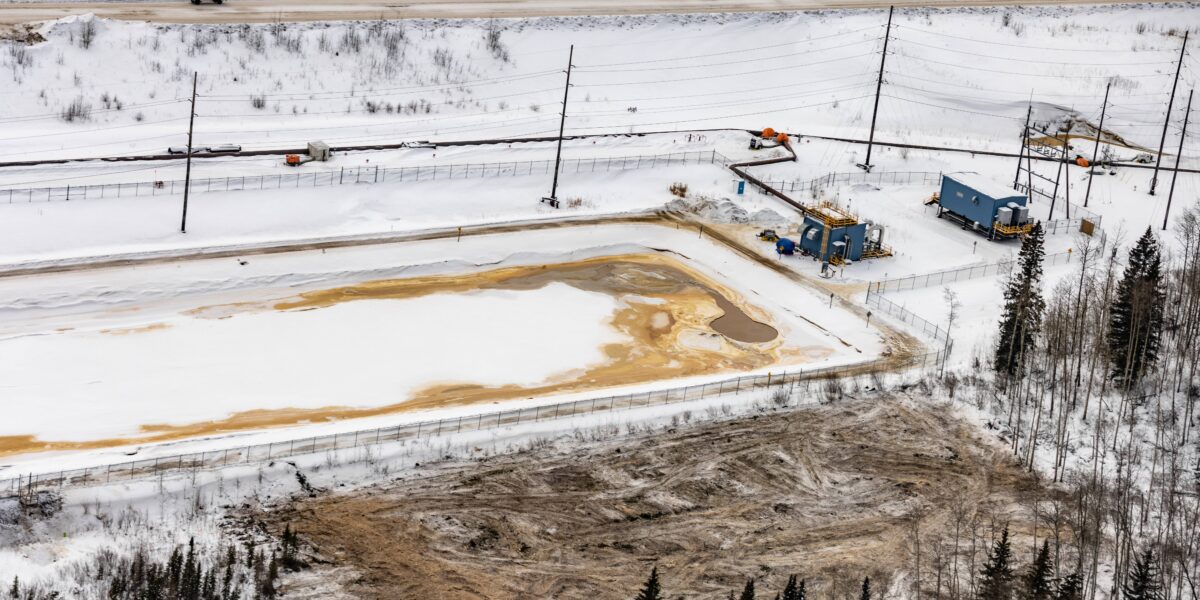Calls for the removal of Miranda Hubbs from the Public Sector Pension Investment Board (PSPIB) were sent to Prime minister Trudeau from working and retired public servants on Tuesday, August 1.
Hubbs is juggling two roles at the moment, one as Director of Imperial Oil and the other as a member of the Board of Directors for the PSPIB. Workers said that Hubbs’ interests with Imperial Oil cannot be reconciled with her duty to PSPIB contributors and beneficiaries.
“It’s impossible for us to ascertain if Ms. Hubbs will oversee PSPIB decisions on human rights, climate risk and fossil fuel investments in the interest of federal employees and retirees– or Imperial Oil’s short-term interests to profit off of oil and gas,” the letter read.
Imperial Oil’s Kearl sands facility was reported to have leaked millions of litres of tailings and toxic wastewater in February 2023. The Athabasca Chipewyan First Nation called the Imperial Oil leak “environmental racism” as they advised community members to not eat food acquired from hunting, fishing and gathering in the area. The Kearl sands leak went unreported for months.
READ MORE: Kearl mine leak went unreported for nine months
“The actions of Imperial Oil while Ms. Hubbs serves on the company’s board, falls short of the ethical standards required by PSPIB and Canada’s federal public service,” workers wrote in their letter to Trudeau. “Ms. Hubbs’ interests, actions and obligations as a Director of Imperial Oil are inconsistent with her fiduciary duty to invest in our best long-term interests and protect the reputation of PSPIB.”
Chronic issues in pension boards
The situation at the PSPIB is not unique. While not all pension boards have members who serve the interests of other corporations, many of Canada’s pension boards have a long history of making investments that go against the interests of workers.
Pension funds aggregate huge sums of money from those who pay into these plans. When pension boards choose to invest money into a certain place, the pension board often gains a lot of pull in that area.
LISTEN: Patrick DeRochie on using pensions to tackle climate change
“We need to consider that these are not just an RRSP, or a savings account that is sitting in your bank, these are massive global asset owners and asset managers,” said Patrick DeRochie, the Senior Manager for Shift: Action for Pension Wealth and Planet Health, an organization that tracks fossil fuel investments from Canada’s largest pension boards.
Pension boards have a responsibility to protect the retirement security of their beneficiaries. DeRochie said that this goes beyond financial return. Pension boards must also ensure that workers have a safe climate to retire into.
DeRochie says that many of Canada’s pension boards are not aligning their massive investment portfolios with the Paris Agreement to limit global temperature increase to 1.5 degree Celsius.
“Companies in these pension funds portfolios are moving in the opposite direction of what is needed,” DeRochie said. “They’re expanding fossil fuels. They’re not putting out credible climate plans and transition plans. They’re exploring for more oil and gas, and they’re undermining government efforts to put in place strong climate policy.”
Beyond investing in companies that harm the environment, some pension boards make investments that seem to fly in the face of workers and human rights.
Hugues Letourneau, who directs the Global Unions’ Committee on Workers’ Capital (CWC), said that pension boards need to put more pressure on their asset managers – including large firms like BlackRock – around environmental, social and governance responsibilities.
“These companies tend to have the largest ownership stakes in publicly traded companies right around the globe,” Letourneau said, “but they don’t necessarily invest it in the best interest of workers. A few examples are Starbucks and Amazon. What are the biggest shareholders doing when companies are violating freedom of association?”
Investing pension funds in workers’ interests
Letourneau said that it is in the hands of workers to hold large pension funds accountable. While part of the solution is divesting from fossil fuels, Letourneau said that fighting back also involves pushing pension boards to use their shareholder power. For example, large asset owners can pressure companies into switching to higher ethical standards and practices.
Letourneau said that this work has already started. Workers are banding together to push for greater transparency from asset managers. This means that those who manage a pension fund’s investment are feeling pressure to share more openly where money is invested, why it is invested in a certain way and how pension boards are using their voting rights as shareholders.
One example is in the shareholder’s proposal for an independent audit on working conditions in Amazon warehouses. The proposal was put to a vote in May and did not pass. However, other shareholders had expressed support for the proposal, forecasting perhaps that pressure to improve working conditions will mount.
Other actions, such as the one taken by members of the PSPIB, will also help push pension funds to adjust practices to align with workers’ interests and rights.
The last piece of the solution involves political action, according to Letourneau. Some places in Europe have stricter laws around transparency requirements from asset managers. Pushing for stronger regulations on large pension boards in Canada may also allow workers to take informed action so that their capital upholds human rights.
“Finance should be at the service of workers, not workers at the service of finance,” Letourneau said. “The idea of workers’ capital is a helpful one, I think, to illustrate this. We need more worker nominated pension fund trustees to better steward our capital. We need to change some of the mentalities around who are the drivers of profit.”



